Christopher (Topher) Weiss-Lehman, PI
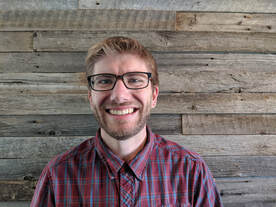
I study the role of rapid evolutionary changes in a spatial context, particularly for range expansions of invasive species and in climate-induced range shifts. Rapid evolution of dispersal ability can increase both the speed and variability of range expansions of invasive species, complicating conservation efforts. However, this same process has the potential to increase the ability of populations to track changing climatic conditions, which could greatly reduce projected biodiversity loss due to climate change. In my research, I combine laboratory microcosms with theoretical models to better understand the eco-evolutionary dynamics of moving populations and the contexts in which rapid evolution can help or hinder conservation efforts.
Office: Science Initiative Building 4238
Email: [email protected]
Download my cv
Office: Science Initiative Building 4238
Email: [email protected]
Download my cv
Alice Stears, Postdoc
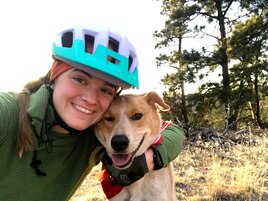
I am a plant ecologist interested in the impact of global change on the ecological processes that shape plant populations and communities. I am particularly interested in the effects of the biotic and abiotic environment on species demographic processes, and thinking about ways to account for these effects in models of population dynamics that are often used to inform species conservation and management. As part of the Modelscape project here at UW, I’m thinking about methods to incorporate interspecific effects on focal species into structured population models, and contributing to collaborative projects that improve our ability to model ecological time series. I didn’t move far to join Modelscapes and the Weiss-Lehman lab, as I also received my PhD in Ecology here in the UW Botany department. My doctoral research investigated how environmental variation across space and time drives plant demographic processes, with a specific focus on how plant leaf and root traits mediate the effect of drought on demographic rates in western grass-dominated ecosystems.
Office: Science Initiative Building 3208
Email: [email protected]
Office: Science Initiative Building 3208
Email: [email protected]
Amy Patterson, Postdoc
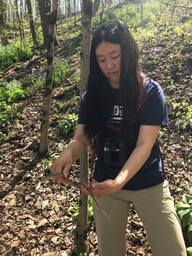
I am a theoretical ecologist with broad research interests including the effects of eco-evolutionary processes on biotic interactions in range shifts, and the consequences of nonlinear dynamics on ecological systems. I did my PhD at Case Western Reserve University where I used equation based models and simulations to determine when eco-evolutionary interactions between competing toxic and resistant species speed, slow, or halt invasions. I also did some work on tipping points, publishing work on improving theory for Early Warning Signals of ecological collapse. Currently, I’m working on using individual based models of evolution in dispersal and fecundity to determine how much each trait contributes to the variation in range expansion speed. As a member of the Modelscapes collaboration, I am contributing to projects including how sparse modeling methods can help us analyze large and complex data sets without overfitting.
Office: Science Initiative Building 4242
Email: [email protected]
Office: Science Initiative Building 4242
Email: [email protected]
John Benning, Postdoc
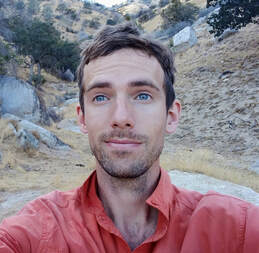
John studies species' range limits, adaptation, and the ecology and evolution of species' interactions. He began his position as a NSF Postdoctoral Fellow with the Weiss-Lehman and Hufbauer (Colorado State University) labs in September 2020 after finishing his PhD at the University of Minnesota. During his dissertation, he used manipulative field and greenhouse experiments to test how biotic and abiotic gradients influence the range limit of a California annual plant, Clarkia xantiana. While these experiments helped to dissect the proximate, ecological causes of range limits, they did not address the ultimate evolutionary phenomena underlying distributional limits. To that end, during his postdoc, he will use experimental evolution, genomic analyses, and novel models to test key predictions of range limit theory and build a conceptual model of how spatio-temporal environmental variation interacts with dispersal to influence adaptation and the formation of species' range boundaries.
Email: [email protected]
Website: johnbenning.net
Email: [email protected]
Website: johnbenning.net
Qingyu Gan, PhD student
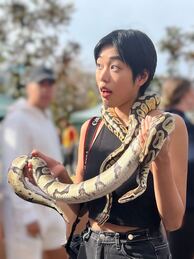
I have a broad interest in conservation biology, with a particular focus on how biotic and abiotic factors affect the population and spatial dynamics of species. I am excited to use modeling approaches to understand the underlying mechanisms of species' eco-evolutionary dynamics so as to do better estimations and predictions for conservation purposes. I graduated from Duke Kunshan University in China in 2023, with a B.S. in Environmental Science, Biogeochemistry, where I studied the impacts of human-wildlife conflict, animal parts trade, and habitat destruction in the context of environmental change in the Anthropocene on distributions and populations of Asian black bear. I started my Ph.D. in ecology and evolution in the Weiss-Lehman lab to study how biotic (species competition) and abiotic (environmental gradient and climate change) affect species' range limits using microcosms and theoretical modeling.
Email: [email protected]
Email: [email protected]
Spencer Holtz, PhD student
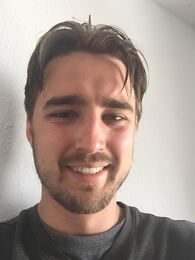
Spencer's research stems from his love of the natural world, and interest in the evolutionary dynamics of different species, specifically looking at them from a genetic perspective. He's excited by the advent of new genetic technologies that allow for new studies that will give us a much more in depth understanding of evolutionary processes. He's motivated by the idea of being able to use these experimental findings to inform conservation efforts to protect the natural world that he has been fascinated by his whole life. He graduated from the University of Colorado in Boulder in 2016 with a degree in biology, where he used next-gen genetic sequencing to study the metapopulation dynamics of the American pika, in order to see how they are responding to climate change. He started his PhD at UW in 2020, and his current research broadly encompasses the genetic effects of range shifts that are very common in the world today due to anthropogenic effects such as climate change, habitat destruction, and the introduction of new species.
Email: [email protected]
Email: [email protected]
Miles DeAntoni, Undergraduate student
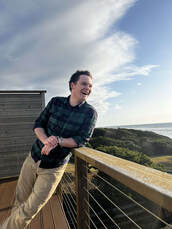
Miles is an undergraduate chasing a Bachelors in Wildlife and Fisheries Biology & Management with a minor in Music. Within the animal kingdom, he is most fascinated with large mammalian carnivores and birds of prey, and hopes to enter the wildlife management field as a Wildlife Biologist to work in the conservation of those and many more species. Outside of school, Miles enjoys hiking, fishing, board games with friends and making music.
Sammy Veauthier, Undergraduate student
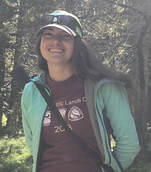
Sammy is an undergraduate majoring in Zoology. After graduating, she plans to attend graduate school to pursue a career in Zoology or Wildlife Biology-based research. Outside of school, she likes to fly fish, read, and cross-country ski. She is on the Nordic Ski team here at UW.
Isabelle Spivey, Undergraduate student
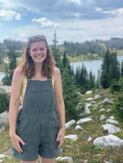
I am an undergraduate with a major in environmental system sciences, and environment and natural resources with a minor in wildlife biology. I love the ocean and hope to work with marine ecosystems in the future. I enjoy salt water fishing, skiing, rafting, and traveling.
Lab Alumni
Former PhD students
Cath Bowler: Consulting ecologist with CO2 Australia
Former Postdocs
Bre Powers: Assistant teaching professor in the School of Forestry at Northern Arizona University
Chhaya Werner: Assistant professor in the Department of Environmental Science, Policy, and Sustainability at Southern Oregon University
Former undergraduate lab techs
Sullivan Ralston
Annaliese Bronner
Anna Carpenter
Alex Kissonergis
Kaylee Hawkins
Cath Bowler: Consulting ecologist with CO2 Australia
Former Postdocs
Bre Powers: Assistant teaching professor in the School of Forestry at Northern Arizona University
Chhaya Werner: Assistant professor in the Department of Environmental Science, Policy, and Sustainability at Southern Oregon University
Former undergraduate lab techs
Sullivan Ralston
Annaliese Bronner
Anna Carpenter
Alex Kissonergis
Kaylee Hawkins
